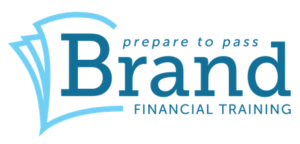For Professional Paraplanner’s TDQ (Training, Development and Qualifications) series, we have teamed up with key support providers, such as Brand Financial Training, to provide our readers with the very best in training, development and exam support.
This series aims to provide you with valuable advice and guidance materials to help you achieve your training goals, perfect your exam techniques and test your knowledge of the financial services market.
The following 10 questions, which can also be found in our October 2020 issue, relate to examinable Tax year 20/21, examinable by the CII until 31 August 2021.
QUESTIONS
1. What information must be stated on the cancellation notice issued to a retail customer? Tick all that apply.
A. Confirmation of the client’s right to cancel
B. It must specify the duration of the client’s right to cancel
C. The inclusion of a freepost envelope to allow the client to cancel without postage
D. Confirmation that the client cannot continue as a client in the event of cancellation
2. Which of the following is true regarding a NS&I Guaranteed Income Bond?
A. Interest is paid net of basic rate income tax.
B. It is not possible to use the personal savings allowance against interest.
C. Interest is paid gross but is taxable.
D. It is possible to use the dividend allowance against returns.
3. Jonathan has recently become self-employed and wants to know how Class 2 National Insurance Contributions are normally paid. You can tell him that:
A. they are collected via self- assessment in one lump sum on 31st January after the end of the tax year to which they relate
B. they are paid on account on 31st January in the year of assessment and 31st July following the year of assessment
C. they are paid quarterly to the National Insurance Contributions Office
D. they are paid monthly by direct debit
4. Gemma is buying a property where the current owners Clive and Kiera have the right to use the back of their neighbour’s property to gain access to their own back garden. Before she goes ahead with the purchase, Gemma should be fully aware that:
A. this is a positive covenant, and Gemma will be subject to statutory restrictions.
B. this is a positive covenant, and Gemma will be bound by its terms.
C. this is an easement and will remain so if Gemma buys the property.
D. this is an easement and will cease on the change of ownership.
5. Disinflation typically occurs when:
A. prices are declining over time and the rate of inflation becomes negative.
B. the supply of goods rises faster than the supply of money.
C. there is a decrease in the rate of inflation.
D. buying power of money is reduced.
6. A company has been paid 200,000 euros for goods and wants to convert this into pounds. If the GBP:EUR quote is 1.2503/8 what would the company receive?
A. £159,859
B. £159,897
C. £159,936
D. £159,961
7. You are the financial adviser to Roger who is a resident in a nursing home, and also to his son John who has an unregistered Enduring Powers of Attorney (EPA) for his father. When you visit Roger for an investment review meeting accompanied by John, you find that Roger is becoming increasingly forgetful and does not remember who you are. What action should you take?
A. Take instructions from Roger to make changes to his investments
B. Discuss with John the possibility of registering the EPA for his father before taking any further action
C. Only take action after discussing Roger’s investments with other family members
D. Take instructions from John to make changes to Roger’s investments
8. Don and Doris arranged a Home Reversion Plan some years ago in respect of their main residence. If Doris goes into a residential home as she needs long term care whilst Don is still in good health, what would normally happen under the plan?
A. The plan would continue until Don dies or goes into residential care.
B. The provider would make an additional payment to Doris.
C. Interest would become chargeable on the plan.
D. The property would need to be sold as soon as possible.
9. Bob reaches State pension age in October 2020 but doesn’t think he will need the income from his State pension. Bob should be advised that:
A. he will only be able to defer once.
B. any deferred income will be tax-free.
C. benefits need to be deferred for at least a year to qualify for an increased income.
D. he can elect to take his deferred benefits as a lump sum.
10. In calculating the maximum benefit payable under an income protection policy, some companies include which of the following to the definition of ‘total IP benefits’?
A. State disability benefits and sick pay from an employer
B. State disability benefits
C. Sick pay from an employer
D. Compensation payments received for accidents at work





























